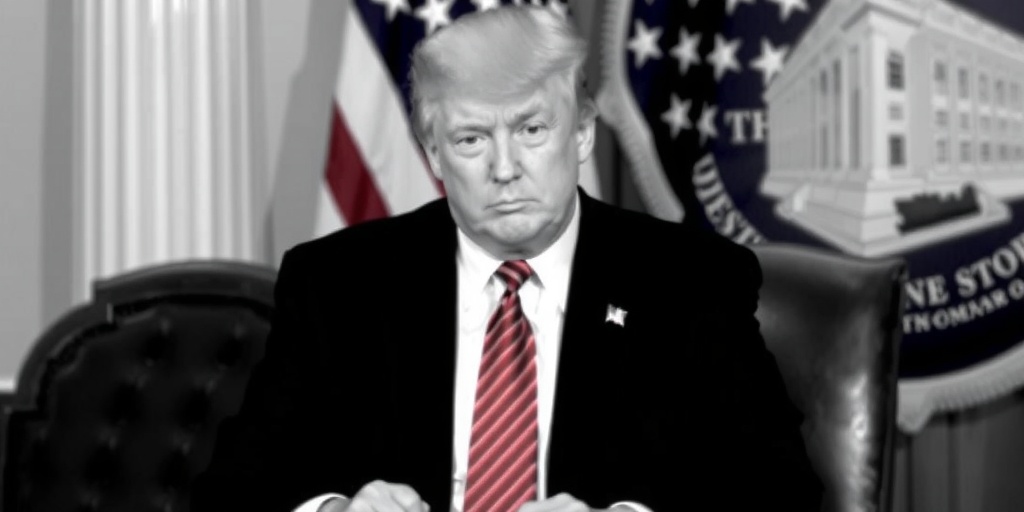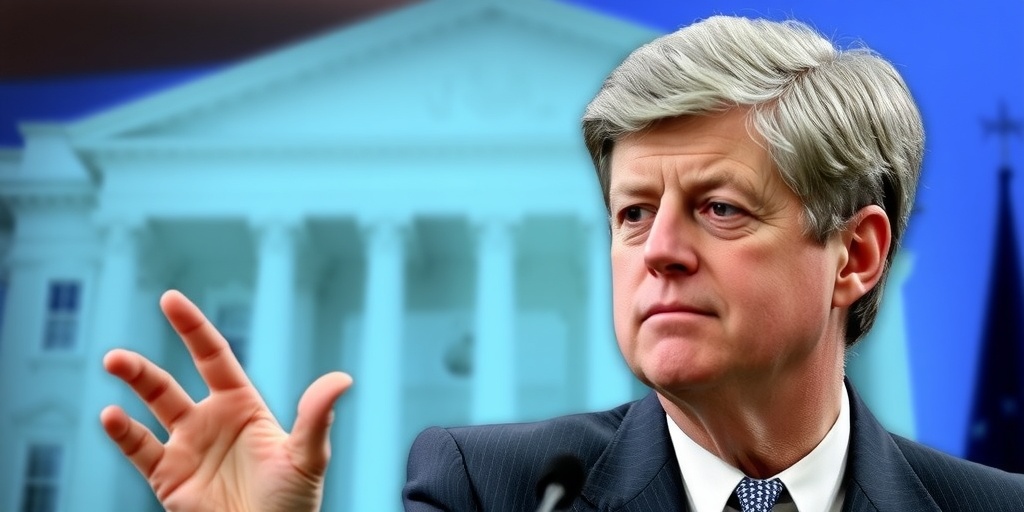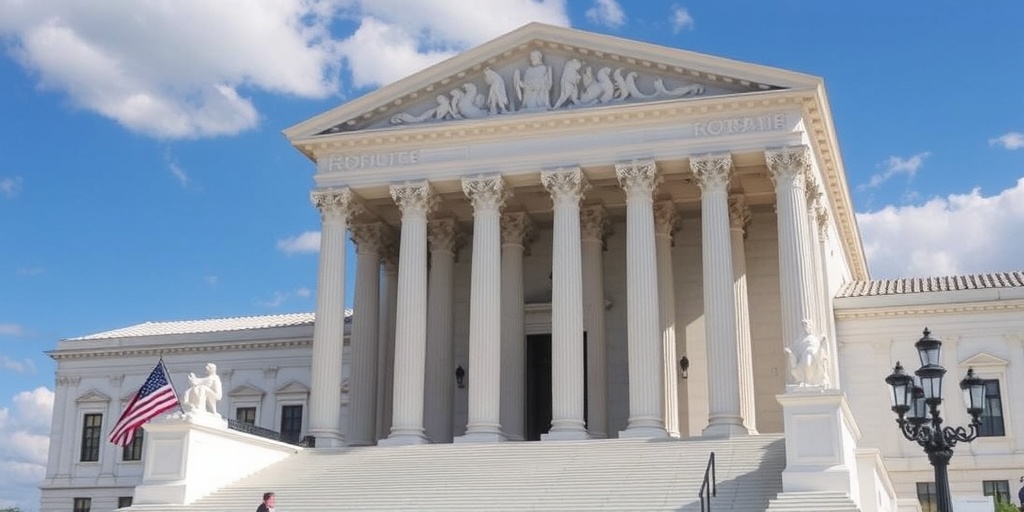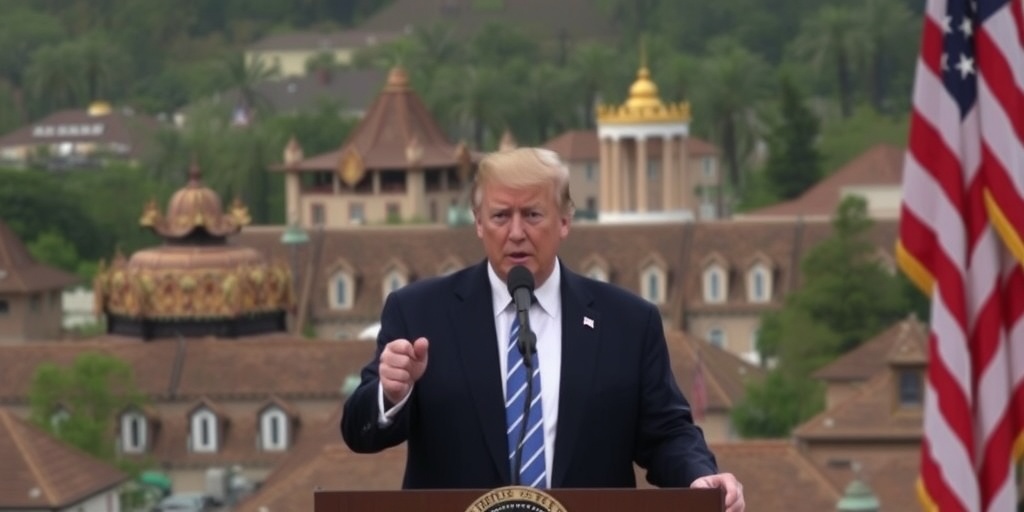Now Reading: Trump’s Orbit Lawyer Appointed to No. 3 Position at Justice Department
-
01
Trump’s Orbit Lawyer Appointed to No. 3 Position at Justice Department
Trump’s Orbit Lawyer Appointed to No. 3 Position at Justice Department

Trump Administration Taps Stanley Woodward Jr. for High Position at Justice Department
In a significant move, the Trump administration announced on Wednesday that President Donald Trump has nominated Stanley Woodward Jr. for the position of associate attorney general, which ranks as the third-highest official in the Justice Department. Woodward, an attorney who has represented several crucial figures within Trump’s inner circle, has played a pivotal role during a tumultuous period marked by multiple investigations and legal challenges faced by the former president.
Woodward’s ascent to this nomination highlights the trust he has garnered from Trump, particularly in the wake of legal scrutiny over the past two years. Since January, Woodward has been serving in a legal capacity at the White House, navigating the complex landscape of Trump’s ongoing criminal litigations. He gained particular prominence for his role in representing Walt Nauta, Trump’s personal aide, during the scrutiny surrounding the handling of classified documents after Trump left office.
If Woodward’s nomination is confirmed by the Senate, he will oversee various critical functions within the Justice Department, including civil litigation, civil rights, antitrust, tax, and environmental matters. Traditionally, the associate attorney general also plays a crucial role in shaping departmental policy and coordinating with the White House. Furthermore, he would assume responsibility for overseeing litigation related to the Freedom of Information Act, a vital component of transparency in government.
Woodward’s joining the Justice Department adds to a string of appointments of officials who previously represented Trump, including Attorney General Pam Bondi and Deputy Attorney General Todd Blanche. D. John Sauer, who has also represented Trump in significant cases, is expected to be approved as the solicitor general, further solidifying Trump’s influence within the department.
In addition to representing aides under investigation, Woodward’s expertise has been instrumental in defense strategies regarding key legal challenges facing Trump. His representation of Nauta was particularly notable as prosecutors considered him a linchpin in deciphering the sequence of events that led to approximately 300 classified documents being improperly stored at Mar-a-Lago, Trump’s Florida estate.
Initially, investigators attempted to convince Nauta to testify against Trump; however, those efforts proved unproductive as he remained loyal to the former president. This loyalty culminated in charges against Trump that included violations of the Espionage Act, with Nauta facing similar charges for conspiring to obstruct investigations into the matter.
Woodward’s aptitude in legal maneuvers has made him a formidable opponent for federal prosecutors. At one point, he was accused of potential ethical conflicts for representing multiple witnesses in the case, which could have impeded his ability to represent Nauta. Despite these challenges, Woodward persevered, and the charges against Nauta eventually dissipated, bolstered by the skepticism exhibited by a judge concerning the special counsel’s handling of the investigation.
In recent years, Woodward’s legal work has predominantly revolved around issues related to Trump, often compensated through the former president’s political action committee. His clientele in these matters has included individuals like Kash Patel, who has since been named as Trump’s director of the FBI.
The timing of Woodward’s nomination coincides with the anticipation surrounding another significant appointment, as the Senate is also preparing to vote on Harmeet Dhillon’s nomination to direct the Justice Department’s civil rights division. This combination of appointments comes at a critical juncture in U.S. politics, as the Justice Department is poised to play a decisive role in addressing various legal and civil rights challenges.
Woodward’s nomination is indicative of the broader political landscape, where loyalty and legal expertise within Trump’s inner circle continue to shape the direction of the Justice Department. As he awaits confirmation, many eyes will be on how this appointment may influence ongoing investigations and the overall policy framework within one of the most critical agencies in the federal government.
Overall, Stanley Woodward Jr.’s nomination as associate attorney general underscores the strengthening of Trump’s influence in governmental institutions, particularly in light of the ongoing scrutiny and legal challenges that remain as the next presidential election approaches. With a solid foothold in the Justice Department, Trump’s legal strategies will likely continue to unfold as various investigations progress and new cases emerge.
Stay Informed With the Latest & Most Important News
Previous Post
Next Post
-
 01New technology breakthrough has everyone talking right now
01New technology breakthrough has everyone talking right now -
 02Unbelievable life hack everyone needs to try today
02Unbelievable life hack everyone needs to try today -
 03Fascinating discovery found buried deep beneath the ocean
03Fascinating discovery found buried deep beneath the ocean -
 04Man invents genius device that solves everyday problems
04Man invents genius device that solves everyday problems -
 05Shocking discovery that changes what we know forever
05Shocking discovery that changes what we know forever -
 06Internet goes wild over celebrity’s unexpected fashion choice
06Internet goes wild over celebrity’s unexpected fashion choice -
 07Rare animal sighting stuns scientists and wildlife lovers
07Rare animal sighting stuns scientists and wildlife lovers





















